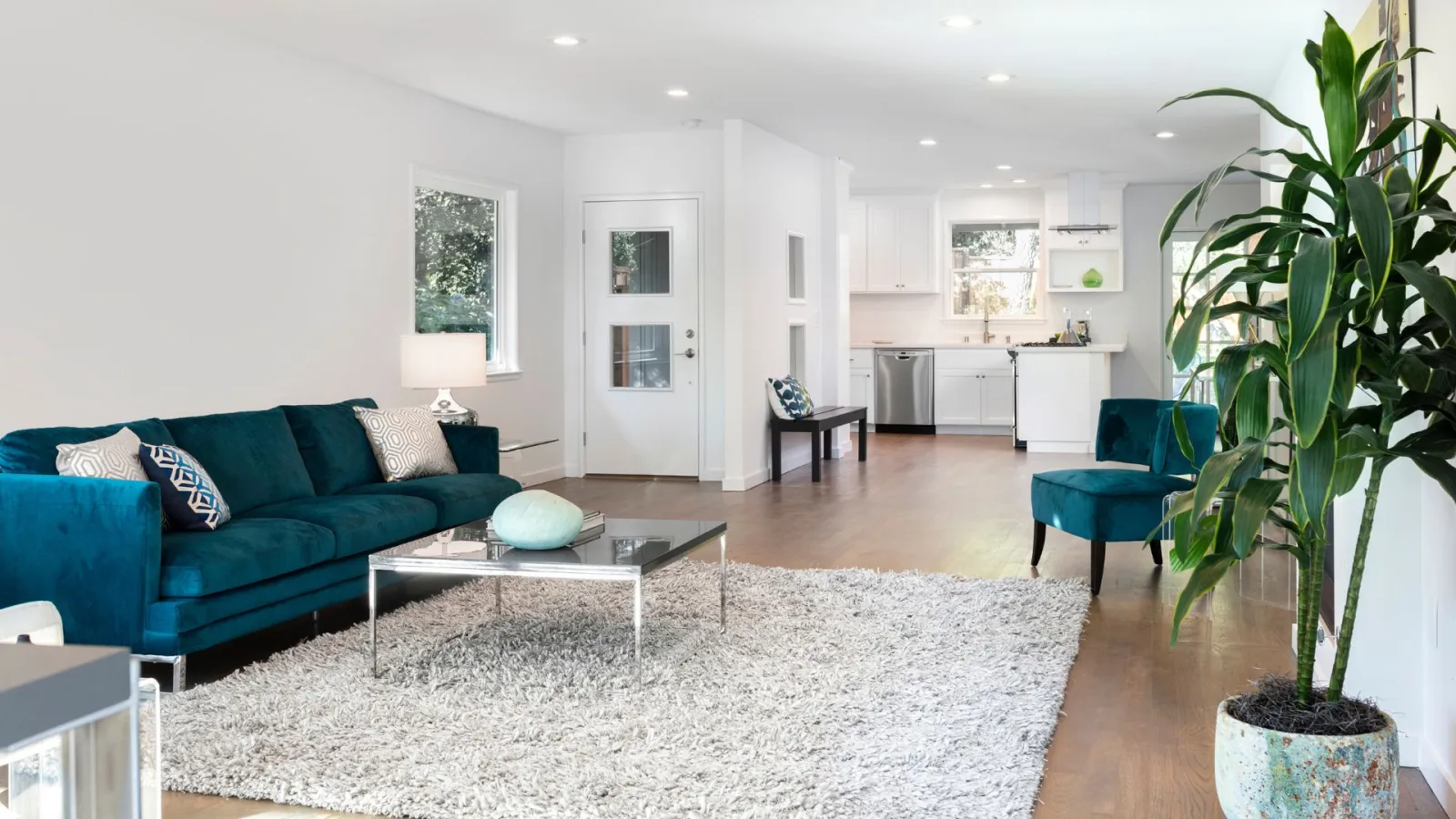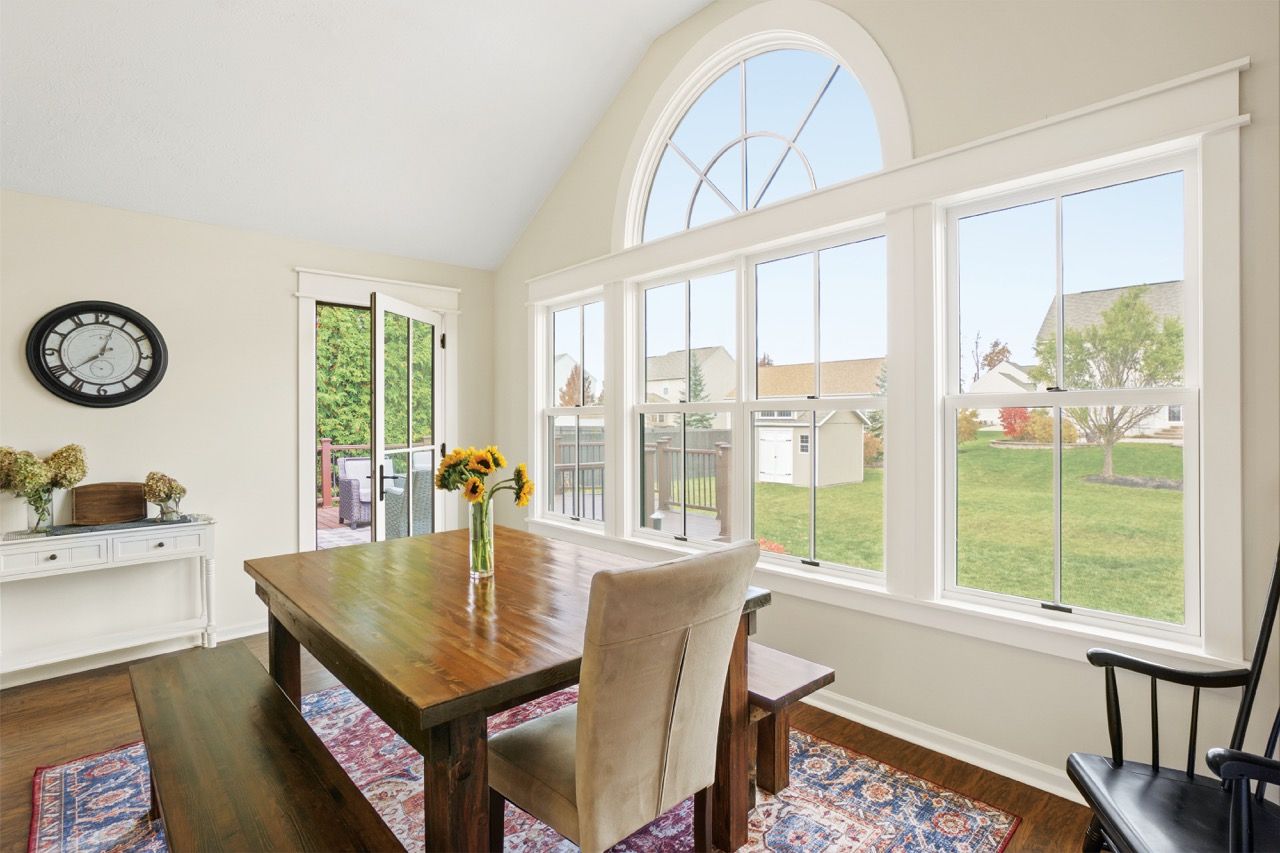Common Window Problems – Outside Noise
Innovative Window Solutions to Minimize External Noise
Is the shrill bark of the dog next door, the vroom of your neighbor's lawnmower being powered up every weekend, or the constant hum of zooming traffic on the highway disrupting the peace and quiet in your Georgia home (and driving you crazy in the process)?
If so, you might be surprised (and excited!) to learn that investing in noise-reducing replacement windows with premium materials and specialized installation from North Georgia Replacement Windows can diminish these loud, annoying outdoor sounds and create a peaceful home.
Below, we've rounded up some of our best tips for dampening outdoor noises and explained when to consider professional window installation to achieve the quiet, relaxing home environment you crave. So, let's dive in and put those disruptive neighborhood noises to rest—for good!
Guide Chapters
The Basics of Noise Reduction
So, if windows can reduce outdoor noises, you might ask yourself, "Why aren't my windows doing their job?"
That's a great question! Unfortunately, there isn't a one-size-fits-all answer. Your windows might not be creating a tranquil indoor environment for several reasons, from failed sealing and improper installation to outdated design and poor window placement.
However, several solutions exist for recapturing peace and quiet after outdoor noises have infiltrated your home. Keep reading to determine which one of the following noise reducing solutions is right for you.
It is important to note that there are so many factors that contribute to the noise level in a room. The thickness and quality of the walls and ceilings, the presence of insulation, and even external factors like proximity to traffic, all play a role in how loud or quiet a room can be.
Interior Storm Windows
Sounds dampen more quickly when traveling through other mediums other than glass, such as dense gases and air spacers. That's why interior storm windows (also called laminated window inserts) are an effective solution for reducing noise on existing windows.
So, how do interior storm windows work? Translucent laminated window inserts are installed inside your window frames and placed a few inches in front of your current glass panes. The small air barrier between the window and the insert dampens sound vibrations as they enter your home, creating a more peaceful environment.
If you're handy, you can install laminated inserts yourself. However, we recommend hiring a local contractor to complete the job to ensure your windows aren't damaged. Otherwise, your attempt to save a few bucks might result in a complete window replacement!
Weatherstripping or Caulking
Small gaps and cracks caused by aging and weathering around your windows and frames sometimes allow disruptive sounds to seep in.
Sealing these openings with interior-grade acoustic caulk is a quick, affordable fix that can often make a huge difference in your home's noise levels. Larger gaps between the window frame and the sash usually need to be sealed off with durable rubber, felt, vinyl, or foam weatherstripping. You can pick up caulk or weatherstripping at a local hardware store.
If you suspect more damage lies beneath the surface from window gaps or cracks (like moisture damage or moldy frames), it's wise to consult a contractor to determine whether caulking and weatherstripping are the real solution or if new windows are needed.
Sound-Dampening Curtains
Do you have a room that only needs to be more quiet at a particular time of day, like a bedroom at night or an office during the day? If so, sound-dampening curtains are an excellent solution.
These curtains, often made from heavy materials like velvet or suede, are designed to reduce both indoor and outdoor sounds. Sound-absorbing curtains come in several varieties, such as blackout curtains and acoustic curtains, and often serve dual purposes, like blocking noise, light, and heat. This makes them ideal for keeping bedrooms cool, dark, and quiet for sleeping.
Rugs and Furniture
Have you been in a bare room and noticed how your voice echoed across the empty walls and floors? If so, you already understand that sound travels the fastest in empty space, so filling your home with furniture will help dampen loud noises.
Thick, plush rugs are a great way to diminish sounds in rooms with tile or hardwood floors. You should also place large furniture pieces, like couches, bookcases, and end tables, near larger windows if possible. The furniture doesn't have to block the view—it just needs to be close enough to absorb sound waves after they travel through the window.
Multi-Pane Windows
Installing replacement windows is the more of an initial investment in reducing noise in a home; however, it can be more effective and permanent than other options.
While single-pane windows can be temporarily fixed with window inserts, replacing them with multi-pane windows provides a longer-lasting solution. Modern multi-pane windows include several "barriers'' for sound to travel through, including two or three panes of glass and dense gas spacers, which significantly dampen noises before they reach your home.
Modern window systems also offer cutting-edge features, like noise-reducing glass, which we'll explain in detail below. Additionally, you can have peace of mind that replacement windows installed by a reputable contractor, like North Georgia Replacement Windows, will be properly sealed and caulked for long-lasting performance.
Types of Noise-Reducing Glass
If you're leaning toward double- or triple-pane replacement windows as your noise-reducing window solution, we think you've made a great choice!
Multi-pane window systems include glass panes with different thickness levels, varying amounts of space between the panes, and dense gas fillers, which can all combat outdoor sounds and impact the overall noise levels in your home.
In addition to this criteria, glass type is one of the most effective (and overlooked!) elements of a noise-reducing window system. At North Georgia Replacement Windows, we offer the following types of sound-reducing glass options by Infinity from Marvin to fortify your window system.
Sound Transmission Class & Outdoor-Indoor Transmission Class (STC/OITC) Glass


Sound transmission class (STC) and outdoor-indoor transmission class (OITC) are the standard measurements for the sound isolation of doors, windows, and walls.
STC measures sound transmission loss over interior areas that experience higher-frequency noises, like televisions or computers.
OITC measures the dampening of street sounds (like traffic, airplanes, construction equipment, etc.) through exterior walls and windows.
Windows with high STC and OITC ratings have better sound performance and are ideal for reducing indoor noise in homes in high-traffic, loud locations, such as big cities like Atlanta, and near transportation hubs, like busy highways or airports.
STC/OITC windows are made with thick glass panes that reflect the energy of the soundwaves that hit them and, therefore, reduce the amount of outdoor noise that makes it inside.
Laminated Glass

Laminated glass is created by bonding a thin sheet of transparent plastic, usually polyvinyl butyral (PVB) between two panes of glass. Though initially designed for security purposes, like keeping a window from shattering when broken and deterring burglars from breaking and entering, laminated glass (also called safety or acoustic glass) is also incredibly useful for reducing loud outdoor noises.
Since plastic absorbs soundwaves while glass reflects them, laminated glass is more effective at muffling loud noises and dampening soundwaves than traditional glass panes.
When to Repair vs. Replace Windows to Reduce Outside Noise
Are you wondering if the loud noises coming through your windows can be fixed with a weekend DIY project or if you'll need to hire a professional contractor to install brand-new windows?
Here are some tips for determining whether you need to repair or replace your windows to reduce outdoor noise and achieve a serene, peaceful home environment.
When to Repair Your Windows
Sometimes, diminishing disruptive sounds in your home is as simple as installing noise-reducing shades or applying some caulk or weatherstripping around your window frames from the local hardware store.
Your windows might be fixable with a simple DIY project if:
You have faulty hardware that is difficult to operate but can be switched out.
You have small cracks between the window frame and the wall that can be caulked.
You have gaps between the frame and the sash that weatherstripping can fix.
You can hang curtains, blinds, or shades to muffle outdoor noises effectively.
You want to improve the performance of single-pane windows by installing interior storm windows to offer an affordable, sound reducing solutions.
When to Replace Your Windows
More often than not, windows that allow outdoor noises to disturb the peace in your home can also cause other worrisome problems, like water damage or high utility bills.
Fortunately, replacing faulty, outdated windows with modern, sound reducing windows from a trusted contractor will reduce noise transmission while improving your home's security, decreasing energy usage, and enhancing your home's curb appeal.
You might need new windows if:
Your windows are more than 20-25 years old.
You notice distorted glass, fogginess, or draftiness from failed window seals.
Your frames are rotting, moldy, or feel soft or "spongy" when touched.
You have single-pane windows and want to upgrade to double- or triple-pane windows.
You want to switch out traditional glass panes for STC/OITC or laminated glass for better noise reduction.
Why Choose North Georgia Replacement Windows?
As you can see, there are numerous options for reducing outside noise coming through your windows, from dampening soundwaves with noise-reducing curtains to filling in small gaps with caulk and weatherstripping. However, the most reliable, lasting noise reduction option is replacing outdated single-pane windows with modern double- or triple-pane windows made of STC/OITC or laminated glass.
Considering window replacement? Read through our case studies to learn how we've helped other Georgia homeowners with beautiful, durable Infinity from Marvin fiberglass window installation.
Ready to get started? Request a proposal today!



